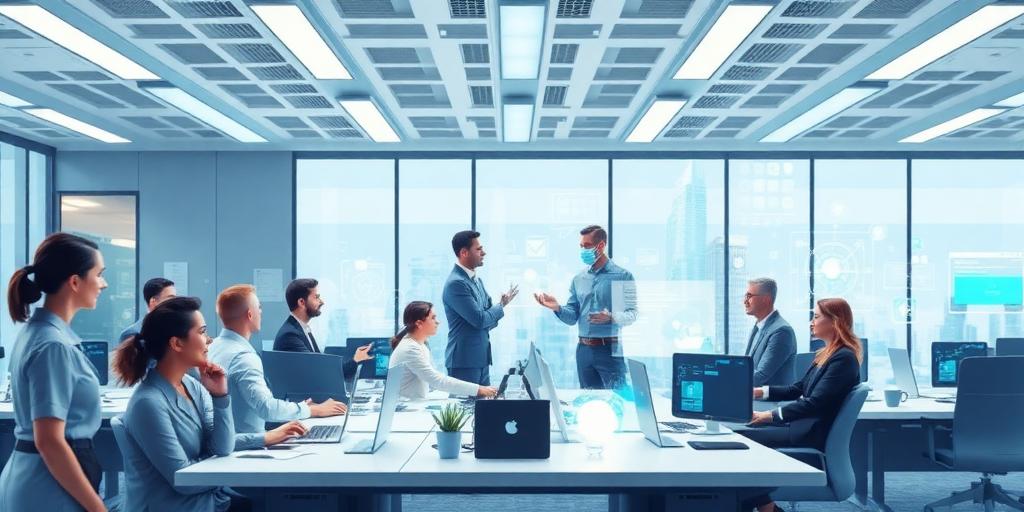The advent of artificial intelligence (AI) has sparked widespread debate, particularly concerning its potential impact on employment. A prevailing question echoes across boardrooms and dinner tables alike: "Will AI take my job?" While the concern is valid and understandable, a nuanced analysis reveals a future less about wholesale job displacement and more about profound transformation and the emergence of new paradigms of work. This article delves into the intricate relationship between AI and the labor market, offering an authoritative perspective on what the future holds for human endeavor.To truly grasp AI's role, we must first understand its strengths. AI excels at tasks that are repetitive, data-intensive, predictable, and rule-based. This includes data entry, routine customer service, certain aspects of manufacturing, and algorithmic analysis. Automation driven by AI can indeed streamline operations and enhance efficiency, potentially leading to the mechanization of roles characterized by these attributes. However, it's crucial to distinguish between automation of tasks and the complete elimination of jobs. Many roles are a composite of various tasks, only some of which are susceptible to AI's current capabilities.Conversely, AI currently struggles, and is likely to continue struggling, with tasks requiring high levels of emotional intelligence, creativity, complex problem-solving, critical thinking, strategic planning, and interpersonal communication. Professions in healthcare, education, creative arts, strategic management, and deeply human-centric services will continue to require and value human input immensely. The ability to empathize, innovate, and navigate ambiguity remains a distinctly human competitive advantage.The narrative often focuses on jobs being "taken." A more accurate assessment points to job transformation. Rather than complete elimination, many roles will evolve, requiring workers to collaborate with AI tools. For instance, data analysts might use AI to process vast datasets more quickly, freeing them to focus on interpreting insights and communicating findings. Healthcare professionals could leverage AI for diagnostics, allowing more time for patient care and complex decision-making. This shift redefines the nature of work, pushing humans toward higher-level cognitive functions and interpersonal engagement.Historically, technological revolutions have not only displaced old jobs but also created entirely new ones. The internet, for example, rendered many traditional roles obsolete but birthed an entire digital economy with millions of new positions. AI is poised to do the same. We can anticipate an increase in demand for AI trainers, ethicists, prompt engineers, AI-driven product developers, and specialists in human-AI interface design. The industries supporting AI development, deployment, and ethical governance will expand significantly, opening new career pathways.Adapting to this evolving landscape necessitates a proactive approach to lifelong learning. Governments, educational institutions, and businesses must collaborate to provide accessible reskilling and upskilling programs. Workers will need to acquire new competencies, focusing on skills that complement AI, such as critical thinking, creativity, digital literacy, and emotional intelligence. The emphasis shifts from what you know to how quickly you can learn and adapt. Investing in human capital through continuous education is paramount to navigating the future of work successfully.The question isn't whether AI will impact jobs, but how we choose to adapt to its influence. Far from a dystopian vision of widespread unemployment, a more probable future involves a symbiotic relationship between humans and AI, where each complements the other's strengths. While certain routine tasks will be automated, the human capacity for innovation, empathy, and complex reasoning will remain invaluable. The true challenge lies in preparing the workforce for this transformation through strategic education, policy adaptation, and a willingness to embrace change. The future of work, shaped by AI, promises to be one of evolution, collaboration, and renewed focus on uniquely human capabilities.




